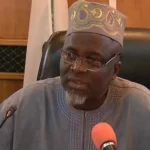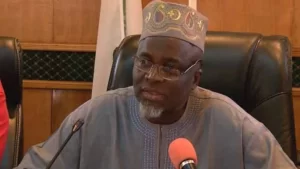Aseries of red-roofed villas are perched high on the steep Mediterranean hillsides above the Stade de Nice. Viewed from certain angles they can appear in peril of sliding down into the city beneath. It is an optical illusion, unlike England’s painful, vertiginous, fall from grace in that arena on 27 June 2016.
Roy Hodgson’s side lost 2-1 to Iceland in France as Euro 2016 entered the last 16 and the continent came to terms with the UK’s Brexit vote and David Cameron’s resignation as prime minister.
Given it was Iceland’s first appearance at a major international tournament few predicted they would not only knock out England but prompt Hodgson’s resignation. When the triumphant defender Kári Árnason declared his team had “shocked the world” no hyperbole was involved. “We all believed, the rest of the world didn’t, but we did,” he said. “This is without a doubt the biggest result in Icelandic football history.”
Goals from Ragnar Sigurdsson and Kolbeinn Sigthórsson ensured it was also one of England’s worst. It seemed they had failed to calculate Iceland had not risen from 131st in Fifa’s rankings to 34th over the previous four years by accident. Maybe the squad made the mistake of regarding an island nation lacking a professional club and with a population of 330,000 as pushovers.
Memories of a chastening reverse remain vivid in Football Association circles, perhaps prompting Gareth Southgate to send a not-so-subliminal warning to his Germany-bound Euro 2024 squad to guard against complacency.
Iceland’s visit to Wembley for Friday’s final warmup will prompt widespread recollections of Wayne Rooney propelling England into the lead from the penalty spot after four minutes in Nice before everything swiftly unravelled. By the 18th minute, Iceland were ahead as they reminded everyone precisely why they had beaten Austria and drawn with Portugal and Hungary during the group stage.
Their co-manager Heimir Hallgrímsson – a part-time dentist who shared the coaching role with Lars Lagerback – reflected on a surprising lack of stress. “I was more relaxed against England than Austria,” he said. “If someone had told me we’d reach the last eight I wouldn’t have believed it. But the opportunity put in our hand was huge … and life-changing.”
The former England captain Alan Shearer said: “That was the worst performance I’ve seen from an England team. Ever. It was tactically inept.”
Sigurdsson detected a certain complacency among the opposition. “England thought it would be a walk in the park,” he said. “But we had faith in our ability. We didn’t feel England created any chances. We were just heading away long balls. I wasn’t stressed in the second half.”
If that represented a damning indictment, the Icelandic TV football commentator Gudmundur Benediktsson relished referencing the wisdom of the UK’s decision to leave the EU after a watershed referendum four days earlier. “Live the way you want England,” he said. “Iceland’s going to play France. You can go home. You can go out of Europe. You can go wherever the hell you want.”
Hodgson knew it was time to draw a curtain on his four-year tenure. “I’m sorry it will have to end this way,” said a man who, like Cameron, is unlikely to forget the final week of June 2016. “I’d have loved to have stayed on for another two years. But I know we’re in a results business. These things happen.”
Southgate can only trust that memory alone will prevent history from repeating itself at Wembley. It is perhaps useful that two of his squad, Harry Kane and Kyle Walker, played in Nice eight years ago. Although Sam Allardyce succeeded Hodgson, his tenure was so brief there barely proved time to stamp the initials SA on his tracksuit. Accordingly, Southgate was well established when England twice met Iceland again four years ago.
Those Nations League matches, played out against the behind closed doors backdrop of the Covid pandemic, resulted in a narrow 1-0 England win in Reykjavik in September 2020 and a 4-0 Wembley victory two months later.
Fast forward to the present day and as a UK general election beckons, Southgate is braced for an unofficial national referendum on his future after England play their final game at the Euros. Opting to limber up with a reunion against an Iceland side disappointed to miss out on Euro 2024 and coached by the experienced Åge Hareide may help him avoid an abruptly unscheduled, Hodgson-style, departure from Germany.










More Stories
Camavinga, Alaba injuries leave Madrid vulnerable against Barcelona
Premier League and FA Cup semis: 10 things to look out for this weekend
Palace’s Mateta punishes Arsenal muddle to leave Liverpool one point from title